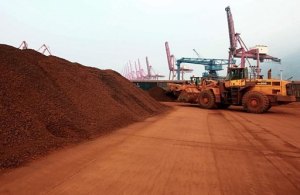 In a deal that seeks to strengthen India-Japan ties and reduce dependence on China for rare earths, India has agreed to provide a long-term, stable supply of rare earth minerals to Japan.
In a deal that seeks to strengthen India-Japan ties and reduce dependence on China for rare earths, India has agreed to provide a long-term, stable supply of rare earth minerals to Japan.
In a statement, issued post the two prime ministers meet recently stated, “We have decided to explore the possibility of bilateral cooperation in development, recycling and re-use of rare earths and rare metals and in research and development of their industrial substitutes.” China currently produces 95 percent of the global rare earths supplies, with the remaining supplied from California, Estonia, India, Malaysia and Brazil. China uses 51 percent of the world’s rare earths, while Japan uses 17 percent.
Global demand is forecast to grow by an average of 790 percent in the next five years as demand for green products increases. However post a navy spat with Japan last month, diplomatic ties have soured resulting in a 70 percent cut in rare earths supplies to Japan. Japan’s stockpile of rare earth minerals, could be exhausted by March or April next year without fresh imports from China. China on its part is expected to also have restricted supplies to maximize profit and strengthen its homegrown high-tech companies.
Low prices for rare earths by China has led to several rare earths mines in the US and Australia being rendered uncompetitive over the last few years. The United States and Australia have 15 and five percent respectively of global reserves, however with China being the sole miner of rare earths, fears have now arisen over China controlling supplies and prices.
Rare earths, are elements that found in small quantities only in a few places, these include Lanthanum, cerium, praseodymium, neodymium, promethium, samarium, europium, gadolinium, terbium, dysprosium, holmium, erbium, thulium, ytterbium, lutetium, scandium and yttrium. Rare earths are astronomically increasing in value as demand rises. High tech countries such as Japan and China require rare earths because they make for smaller, lighter batteries and motors. Rare earths are used in the manufacture of rechargeable batteries for electric and hybrid cars, advanced ceramics, magnets for electric car motors, computers, DVD players, wind turbines, catalysts in cars and oil refineries, computer monitors, televisions, lighting, lasers, fiber optics, glass polishing, superconductors, and weapons.
